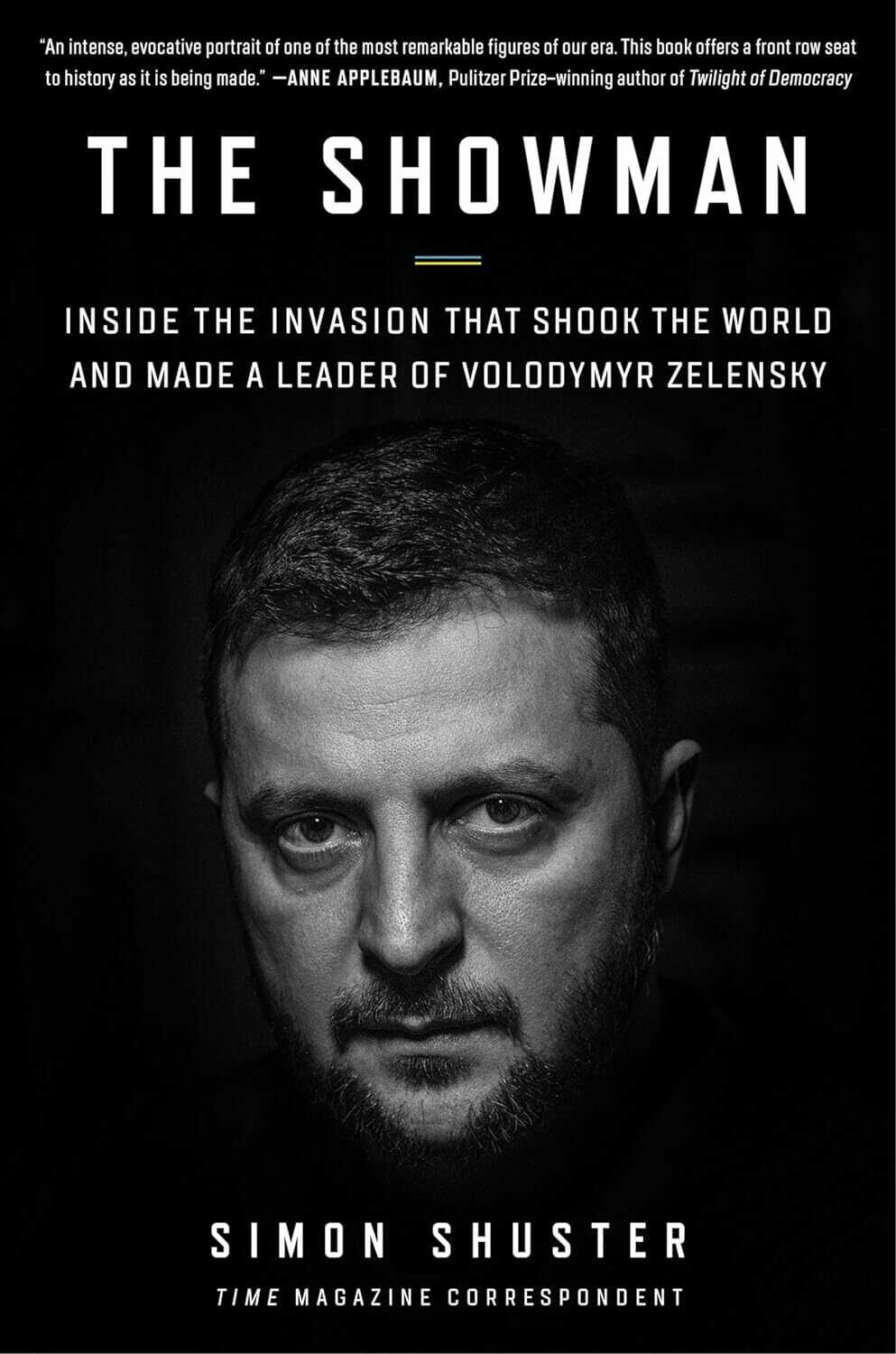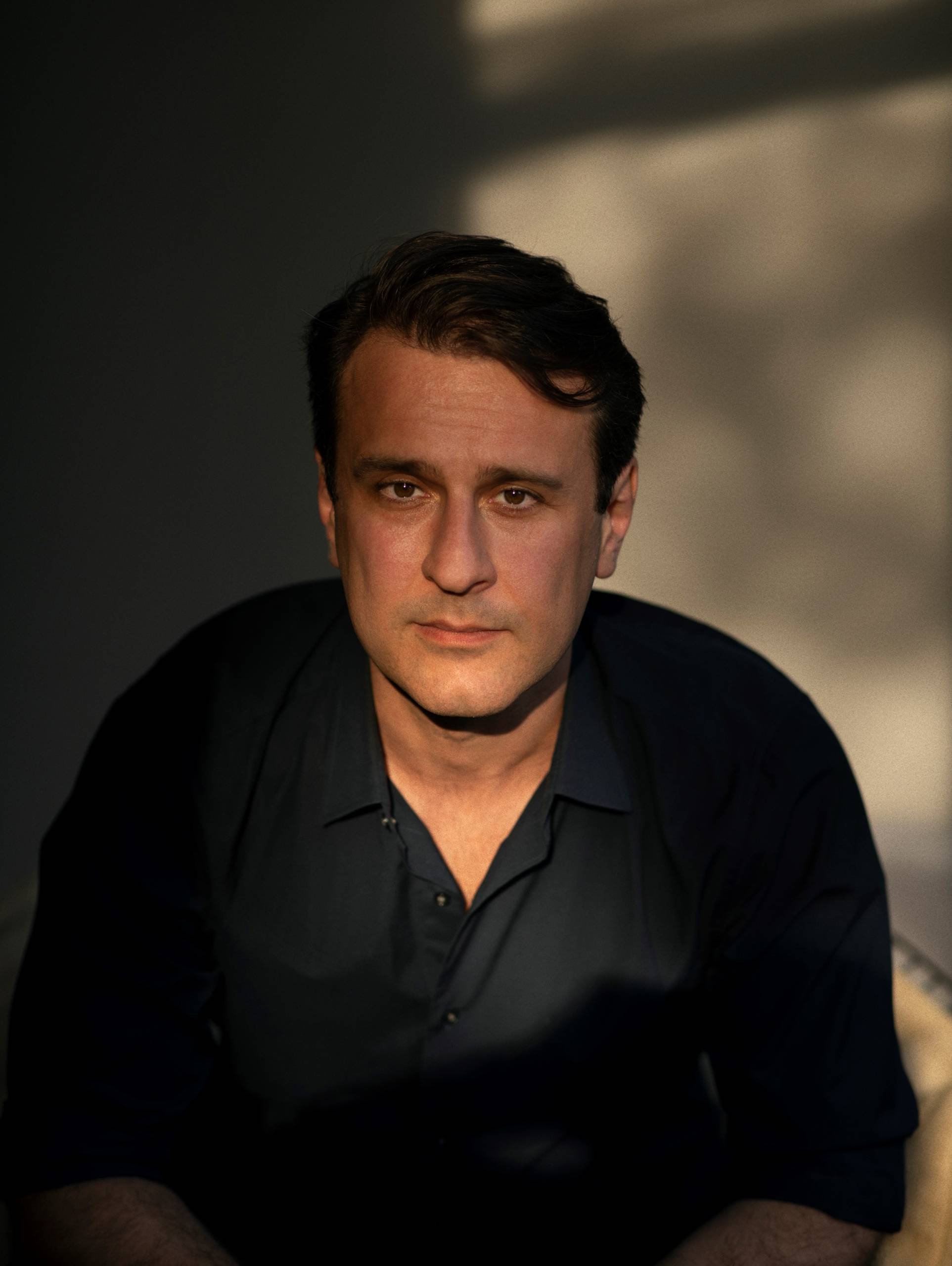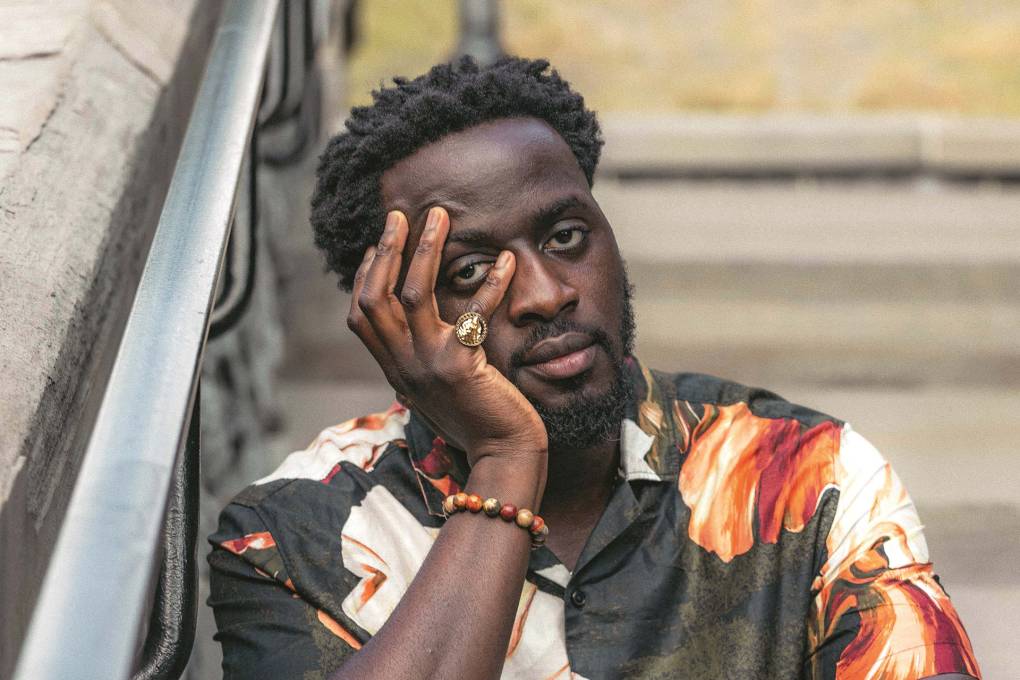
When Moscow-born journalist Simon Shuster was growing up in San Francisco in the 1990s, he couldn’t have imagined that there would be a war between Russia and Ukraine, or that he would be the one accompanying the Ukrainian president on top-secret trips to the front.
Shuster, now a senior correspondent for Time, is the only foreign reporter to receive unprecedented access to Ukraine’s President Zelensky, his wife and his cabinet during the first year of Russia’s invasion, which he chronicles in his new book The Showman: Inside the Invasion That Shook the World and Made a Leader of Volodymyr Zelensky. Shuster shows us the invasion from inside the war room to demonstrate both the effect the comedian-turned-politician has had on the war — and the effect the war has had on him. At the heart of this book is a question: What path best prepares us for the unimaginable?

The author’s own path toward that war room wasn’t straightforward. Few immigrants from the former Soviet Union return to visit their homeland. Fewer still move there to build a career. Shuster said it was while he was dabbling in journalism at Stanford that he realized his ability to speak Russian and write in English was “a pretty cool competitive advantage that I should not squander.” He moved to Moscow to work as a reporter in 2006 and has remained a key figure in the coverage of the region ever since.
Still, when asked what it was about him that made Zelensky grant him unique access, he said he doesn’t fully know. “I think he saw my long-term commitment to covering the story. But also, the way he makes decisions is usually shooting from the hip. It’s quite intuitive.”
Zelensky’s decision-making style is evident from the start of the book. The Showman opens with a striking scene at the president’s villa at 4:30 a.m. on the morning of Russia’s invasion, when Zelensky, already dressed in a suit, tells his wife, “It’s started.” We follow him as his driver takes him toward Kyiv’s center, while “in the other direction the traffic had started to thicken.” People are fleeing. Soon, Zelensky will get offers from foreign heads of state to help him flee as well. He will find them offensive. The opening scene sets the tone for the rest of the narrative, where the president’s confidence in his decisions (some brave, some irrational) forges a path for Ukraine that no one could have predicted.



